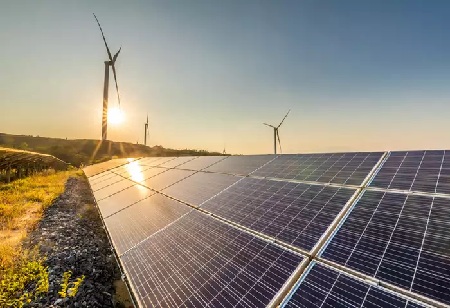Large developers in the renewable energy sector have enough options to boost returns even as challenges mount and will fight aggressively in the various auctions scheduled in 2022, a new report by the Institute for Energy Economics and Financial Analysis (IEEFA) said on Wednesday.
Falling costs of solar modules, which in turn brought down tariffs, fuelled the growth of India's renewable energy growth story. However, turmoil in global supply chains caused by the Covid-19 pandemic and the Russia-Ukraine war has pushed up costs. Further, renewable energy developers face higher financing costs as surging inflation has forced central banks to tighten monetary policy, pushing up interest rates.
The challenges, though, are unlikely to have a lasting impact on India's renewable energy story. "We believe India will be able to continue its renewable energy capacity addition trajectory because current supply chain challenges will ease
in the short-to-medium term, and the industry has enough cushion to absorb these downside risks," says the report's co-author Shantanu Srivastava, Energy Finance Analyst, IEEFA.
"Central and state nodal agencies should proceed with their pipeline of renewable energy auctions, given that interest from the large companies in the sector should continue, even in these unprecedented times," says co-author and guest contributor at IEEFA Ankur Saboo, an infrastructure finance specialist.
The report highlights various options that large renewable energy companies have to enhance their return on equity, which would help them tackle the challenges.
According to Srivastava and Saboo, large renewable energy developers can lean on bond markets to refinance debt at lower rates and take advantage of a non-amortisation period on debt repayments. This leads to the front loading of equity returns. Further, margins on in-house engineering, procurement and construction provide a kicker to returns.
The sale of stakes in operational projects to strategic investors such as global oil and gas majors and financial investors like infrastructure investment trusts is another avenue developers have used to increase returns.Finally, the selling of carbon credits to developed economies is increasingly considered a viable source of additional income for developers, further enhancing their returns.
The report analyses how these measures can help a solar power project and a hybrid wind-solar power project enhance their equity returns. It finds that refinancing at a 100 basis point lower rate of interest can help add two per cent to a hybrid wind-solar power project's equity internal rate of return.
